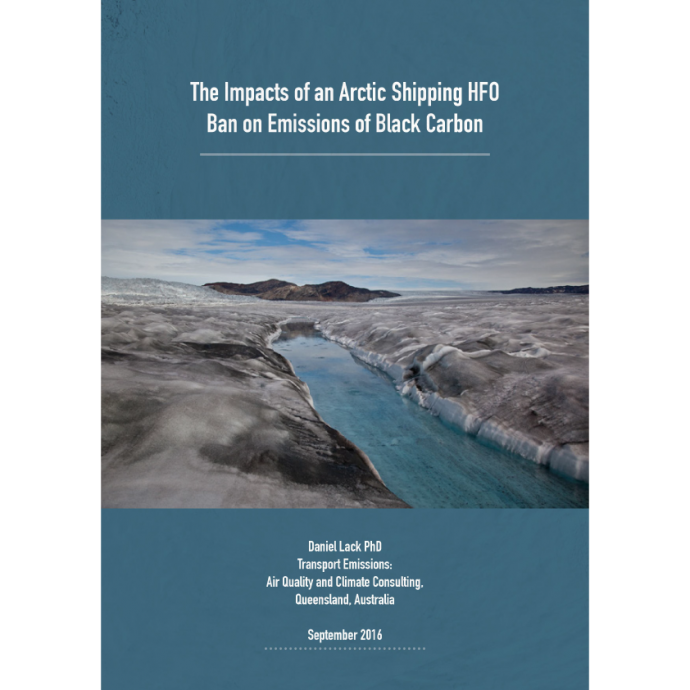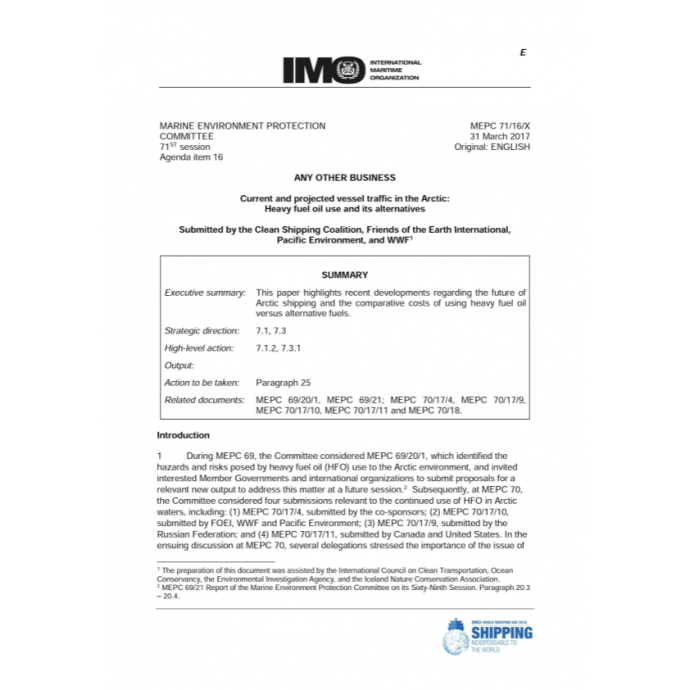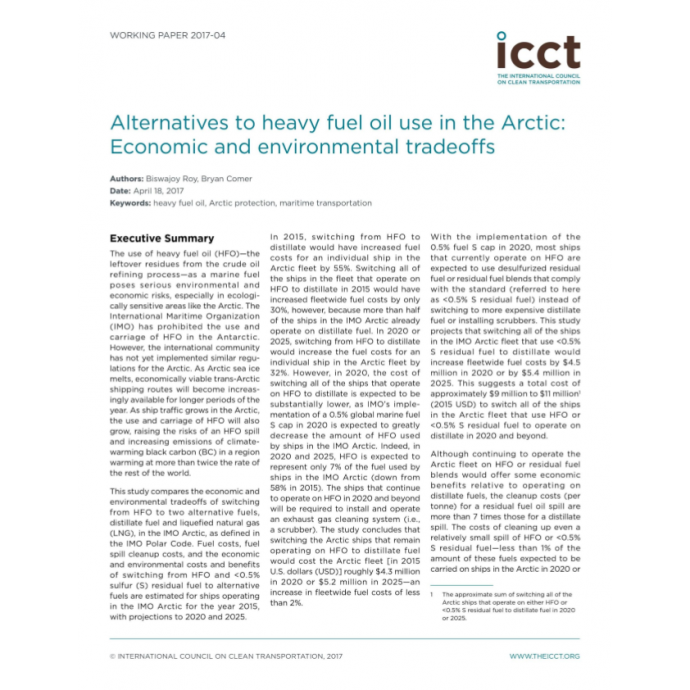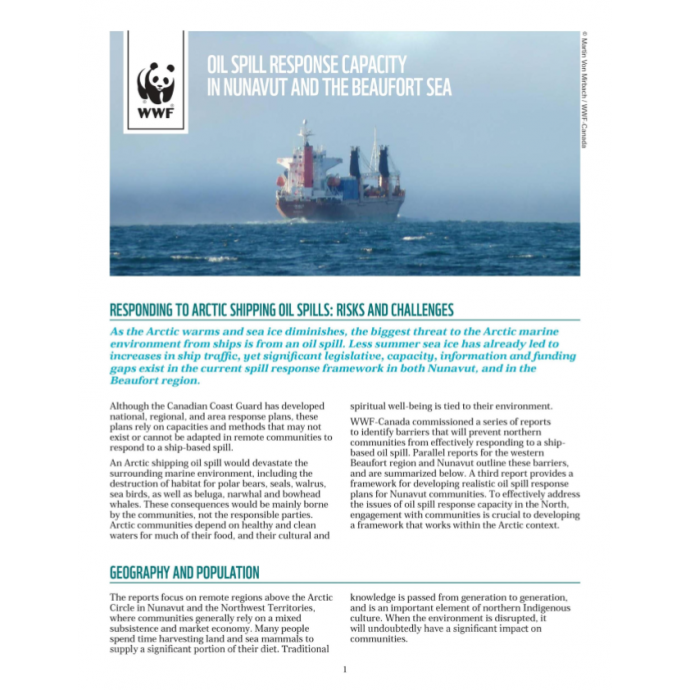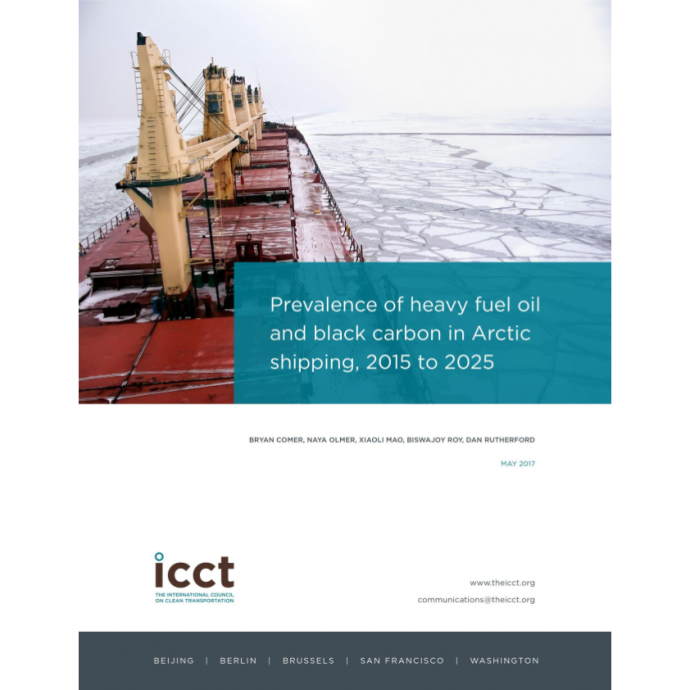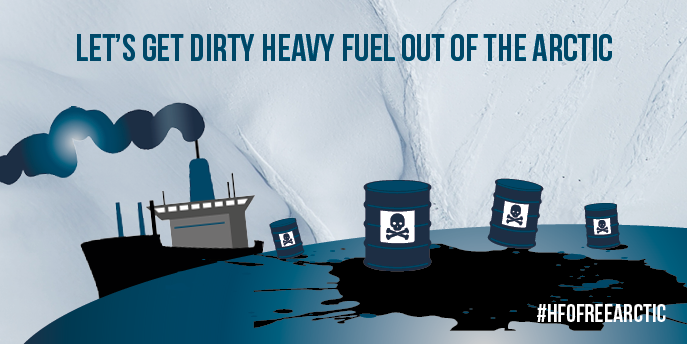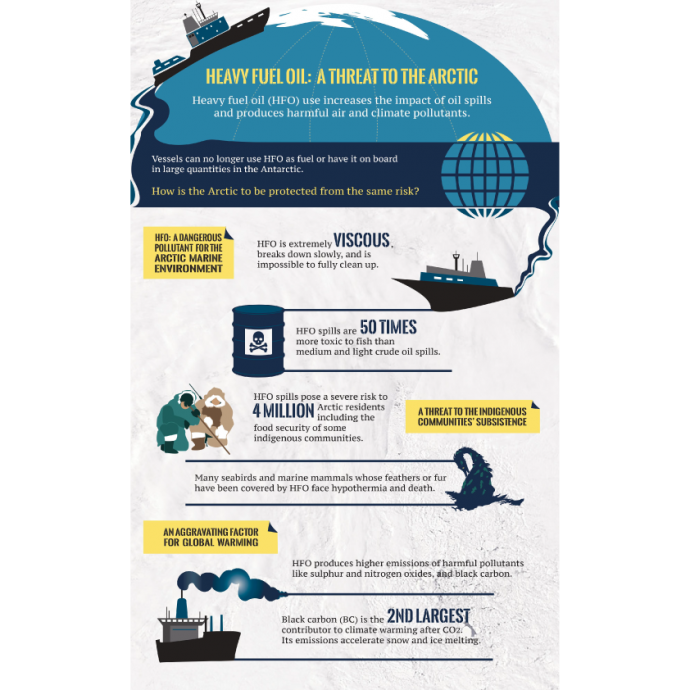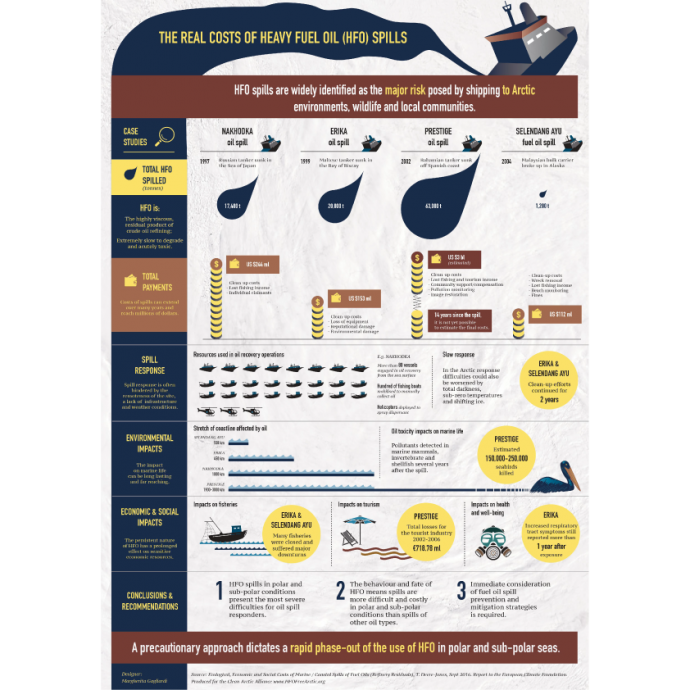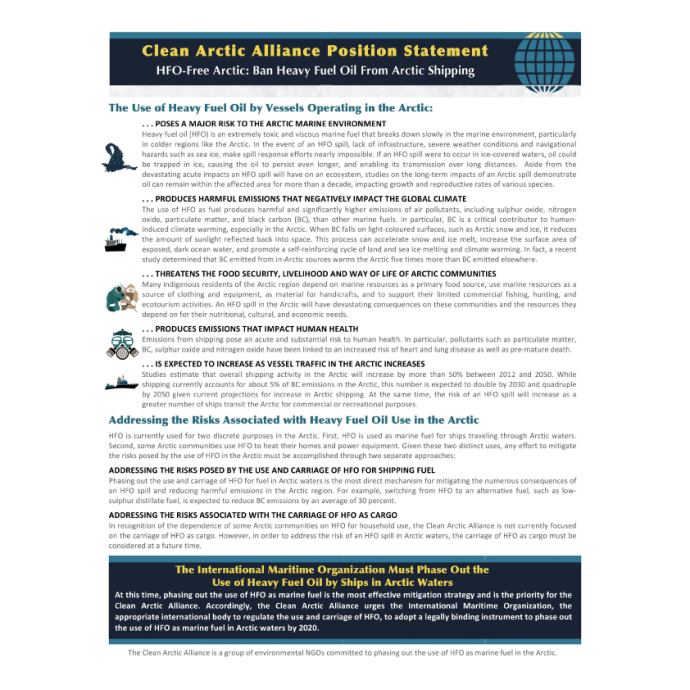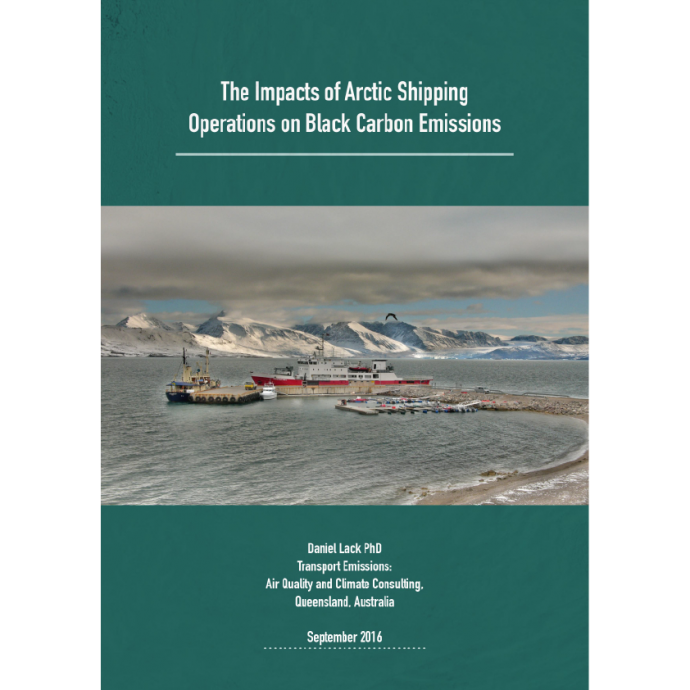The impacts of an Arctic shipping HFO ban on emissions of Black Carbon
A report by Daniel Lack PhD
This report demonstrates how a shift from low quality high sulphur residual fuels to high quality low sulphur distillate fuels will result in a 50% reduction in Black Carbon (BC) emissions and estimates what impacts a HFO ban would have on emissions of other pollutants and takes into consideration the technical and financial aspects.

